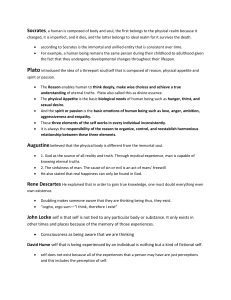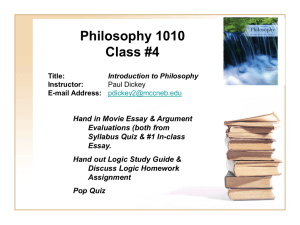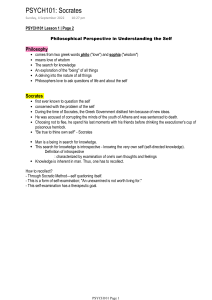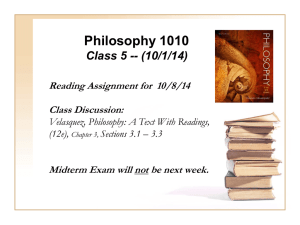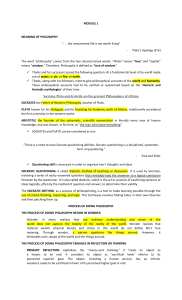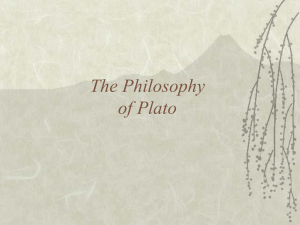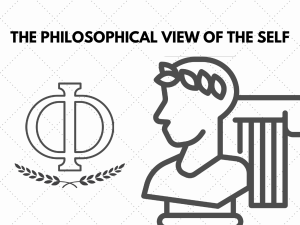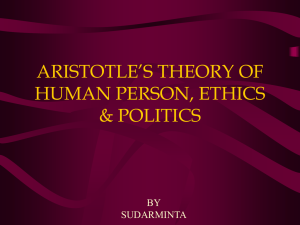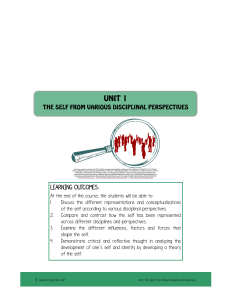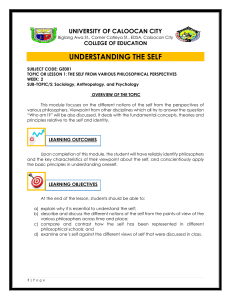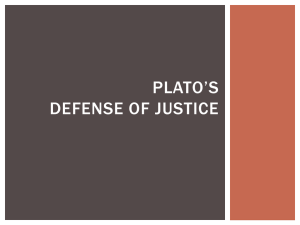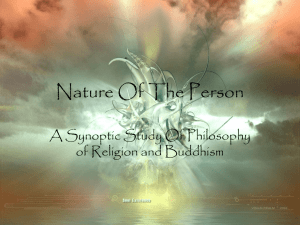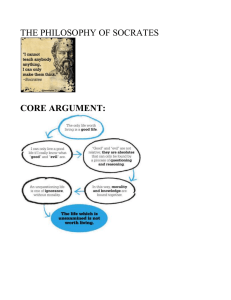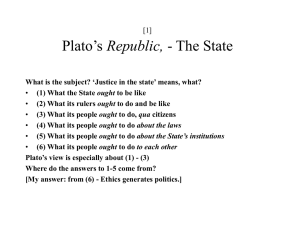Hystory and Systems
advertisement
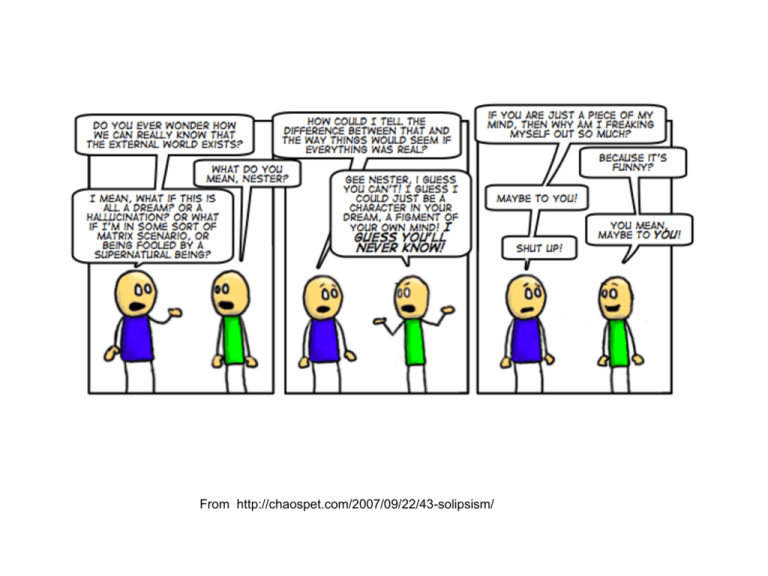
From http://chaospet.com/2007/09/22/43-solipsism/ Solipsism: Belief that one can know nothing but oneself and that the self is the only thing that is real. Nothing exists; Even if something exists, nothing can be known about it; and even if something could be known about it, knowledge about it can't be communicated to others. Imagine there is . . Of course, on the complete opposite end of the spectrum, there are many arguments that solipsism is completely false; not only does the external world exist, but everything exists exactly as it is perceived, and it is perceived in exactly the same way by everyone. And still between the two there is a very wide range of middle ground; perhaps everything (or at least most things) that are seen do exist, but maybe not quite exactly as they are seen. In fifth century Athens a small band of philosophers controlled the public dialogue. They were called Sophists, Greek for “One Who Does Wisdom.” Originally, they were itinerant teachers in who provided education through lectures and in return received fees from their audiences. Sophomore - Sophos = wise and moros = foolish The etymology is from the Greek and Latin "Sophisme", meaning wisdom. The English converted it to "sophume", and one who practiced wisdom was a "Sophumer". It wasn't until 1726 that the spelling was established in America as "Sophomore.“ * literally speaking, a wise fool is someone who has gained knowledge but hasn't yet learned, or acquired the skills, to apply it correctly. He knows enough to sound smart, but not enough to be wise. Protagoras “Man is the measure of all things” The essential claim of sophistry is that the actual logical validity of an argument is irrelevant (if not non-existent); it is only the ruling of the audience which ultimately determines whether a conclusion is considered "true" or not. By appealing to the prejudices and emotions of the judges, one can garner favorable treatment for one's side of the argument and cause a factually false position to be ruled true. Rhetoric Humanism Socrates “Midwife of Thought” Idealist – Knowledge is innate. ~ believed in the reincarnation of an eternal soul which contained all knowledge. We lose touch with that knowledge at every birth, and so we need to be reminded of what we already know (rather than learning something new). Socratic (Dialectic) method - Knowledge is recollection Theory of Forms - universal truths ( Ideal forms) exist. Our perceptions however, are faulty. The only way we can know these forms it through rational thought. Ethics Socrates – what it to be considered a good act is not good because the gods say it is, but is good because it is useful to us in our efforts to be better and happier people. I one own self be true. Plato: (437-347) (Aristocles) Like Socrates, Plato is an idealist and rationalist. He divides reality into two: On the one hand we have ontos, idea or ideal. This is ultimate reality, permanent, eternal, spiritual. On the other hand, there’s phenomena, which is a manifestation of the ideal. Phenomena are appearances -things as they seem to us -- and are associated with matter, time, and space. Senses can only give information about the ever changing and imperfect world of phenomenon. From sensations we imply the ideal reality but the only way to know truth is through rational thought. Dualist Body - material mortal and moved (subject to physical principles). Soul – ideal, immortal and unmoved (subject to free will). Ethics – soul will always choose to do good, if it recognizes what is good. Sin (bad) is considered a matter of ignorance. People who sin are in need of education, not punishment. Three Levels of Pleasure 1) Sensual or Physical (sex) 2) Sensuous or esthetic (beauty or relationship in a marriage) 3) Ideal pleasure of the mind Platonic love – intellectual love for another person unsullied by physical love. Plato's School of Athens Three levels of soul Appetite – mortal and resides in the gut. Spirit or courage – also mortal and resides in the heart. Reason – immortal and resides in the brain. Connected by cerebrospinal canal. Likens the soul to two steeds, one that is lively but obedient (spirit), the other is unruly and violent (appetite). These are yoked together and driven by Reason (the charioteer) who through considerable effort makes them pull together and cooperate. The Republic- designs a society (Utopia) Written to explore the meaning of justice Peasants – foundation of society - produce the goods - take care of appetite Warriors – spirit and courage Philosphers (kings) – reason that guides the society. Aristotle – Empiricist/Materialist Plato’s student, but disagreed with him on many points. - as much a scientist as a philosopher. What Plato called Idea (ideal) Aristotle called essence. Invented modern logic (inductive reasoning – from particular to general). Dualist The ideal is found within phenomenon. Empiricist • All knowledge comes from the senses and through experience. • The mind is like a blank writing tablet - Tabula Rasa • Knowledge should be based on observations of the external world So is it Psychology …? Ideas about Memory: Socrates - thought that humans already possessed knowledge, and that they only had to be led to discover what they already knew. Plato – Wax Tablet and a Bird Aviary Aristotle – learning is through experience
